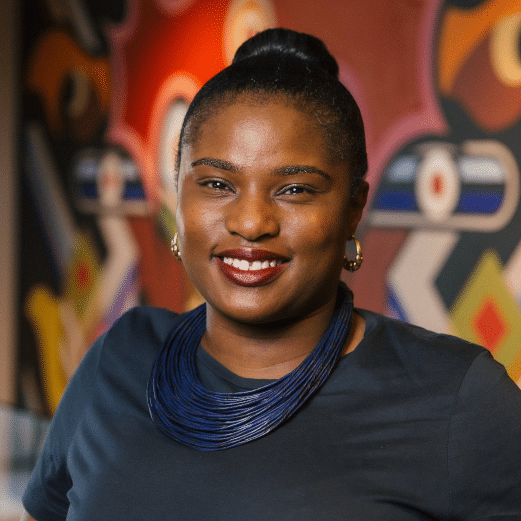An interview with Sharon Annafi, Head of DE&I at Havas UK

Can you tell us a bit about your background?
My career has been quite diverse and non-linear. I’ve worked in the private sector in local government, charity, education, and DE&I. I even had a stint in law, where I helped process and assign asylum claims. I was terrible at it because I believed everyone’s story and didn’t want to deny anyone!
I’ve been at Havas for three years now. Before that, I worked at the Prince of Wales’ ‘Business in the Community’ organisation. I’m not a DE&I puritan and don’t believe in hard and fast rules. Flexibility is key in a role like mine.
What are some lessons you’ve learnt to make real change?
For change to be tangible, you need to be honest with people. The organisations I was most impressed with were the Armed Forces. They’re an ancient group of organisations, with strict regulations and a compliant workforce. They partnered with a mining company present in Southern Africa, to build allyship and share lessons learnt. They linked up experts to help reduce sexual violence against employees in remote locations, given their similarities in hierarchical structures and remote confined working spaces. I helped broker conversations and brought the organisations together. They created environments where men felt more able to speak up and utilise mechanisms for whistleblowing and anonymous reporting.
The biggest lesson was that building allyship is crucial for nurturing cultural and behavioural change. Regulation is also vital – you can’t rely on goodwill or trickle-down economics. Historically, people pushed back on health and safety regulations, but now they see them as the norm. It takes one to two generations for such norms to become embedded. Why shouldn’t we regulate to give everyone a fair and equitable chance? Scandinavian countries have many regulations, and their people are among the happiest in the world.
What is the role of sponsorship in DE&I?
Leaders tend to buy in and be accountable for DE&I, whereas middle management are often more challenging and act as blockers. They need to step up as more prominent challengers to be role models for the rest of the business. However, we do need to put structures in place beyond just modelling behaviours – identifying grassroots talent, letting them shadow you, and having one-on-one conversations are crucial. Actively seeking people to share messages rather than relying on cascading messages through the organisation is much more effective. For example, Mark Whelan, Chairman and Chief Creative Officer at Havas, is very active in this way and has done work with numerous community groups, organisations and individuals from across London. Seeing people in person, being in meetings about DE&I and being visible – phenomenal leadership is being front and centre.
How do you approach DE&I on a global vs. local level?
It’s important to respect and understand cultural norms that differ from Western standards. In some countries, organisations like Havas can’t collect employee data on specific characteristics due to the risk of persecution if the data were leaked. Therefore, relying purely on Western standards as the measure for success in DE&I is risky. It may be my bias, but I think the UK generally lead the way when pushing the boundaries for DE&I, but we can definitely learn from others in some areas. France for example is ahead of the UK when it comes to disability, as they have legislation with penalises organisations for not having enough disability representation in their workforce – a great model the UK could emulate.
What is your approach to culture change within an organisation?
Listening to people and putting minority voices at the centre of the conversation is crucial. Changes made for neurodivergent colleagues, for example, benefit everyone. Seemingly minor adjustments, like improving transport accessibility for parents with buggies, also helps visually impaired and disabled people. These changes don’t cost much but make a significant difference to the lives of those who most need it. When people tell us the adjustments they need, we shouldn’t ask them why they need – we shouldn’t make the process onerous for them. It’s our duty of care to ensure they have what they need to do their job effectively. Workplace passports that describe people’s preferences and needs are a good idea, so they don’t have to feel uncomfortable asking for accommodations or repeating their requests to different people.
What are your top tips for DE&I?
- Listen and understand that people’s needs are constantly changing.
- Use employee representative groups (ERGs) and people councils to feed into strategies and adjustments.
- Always be open to change and correction.
What are some of your proudest moments?
Some of the smallest moments are my proudest. I remember speaking to a young woman who wanted to wear her hijab but felt she couldn’t because of the liberal work environment. After our conversation, she began trialling it. Policies are essential as a baseline for accountability, though they must evolve constantly. I’m also proud of brokering conversations and getting people to understand each other.
Sign up to The People Strategist, our regular Gate One newsletter that helps you enable your people to be the best they can be.

